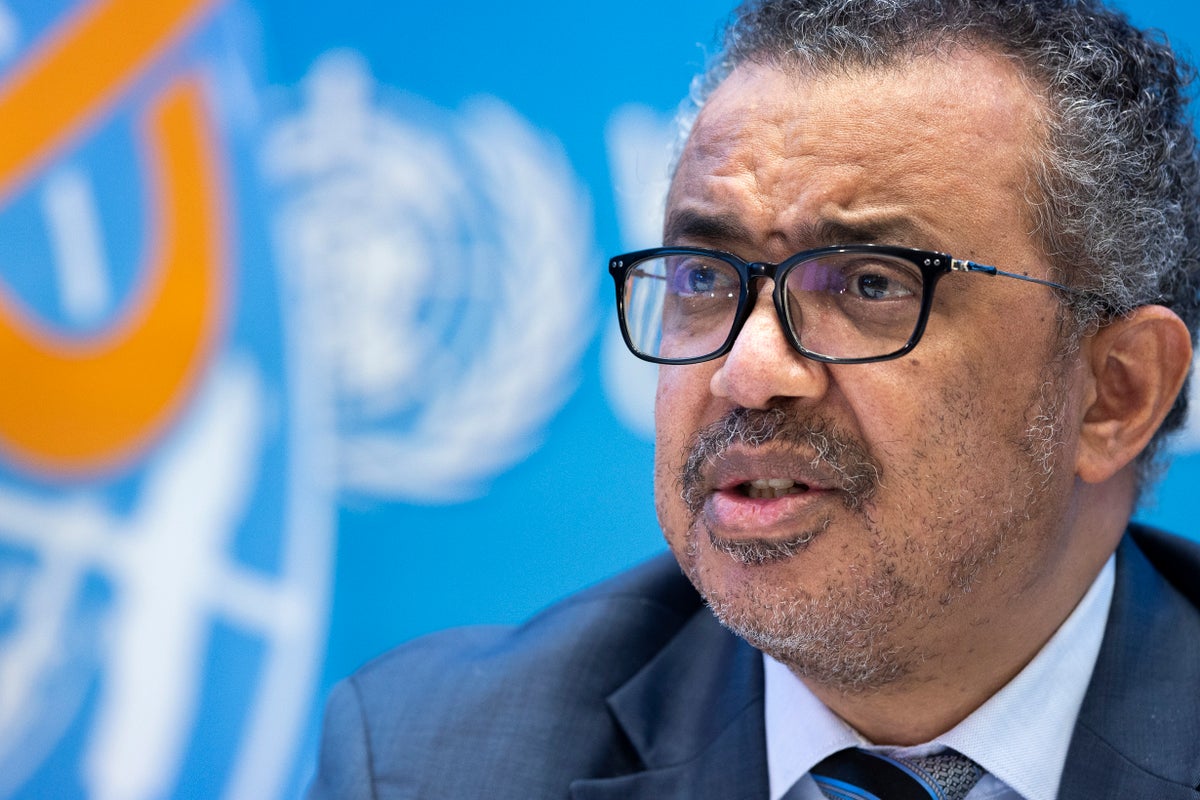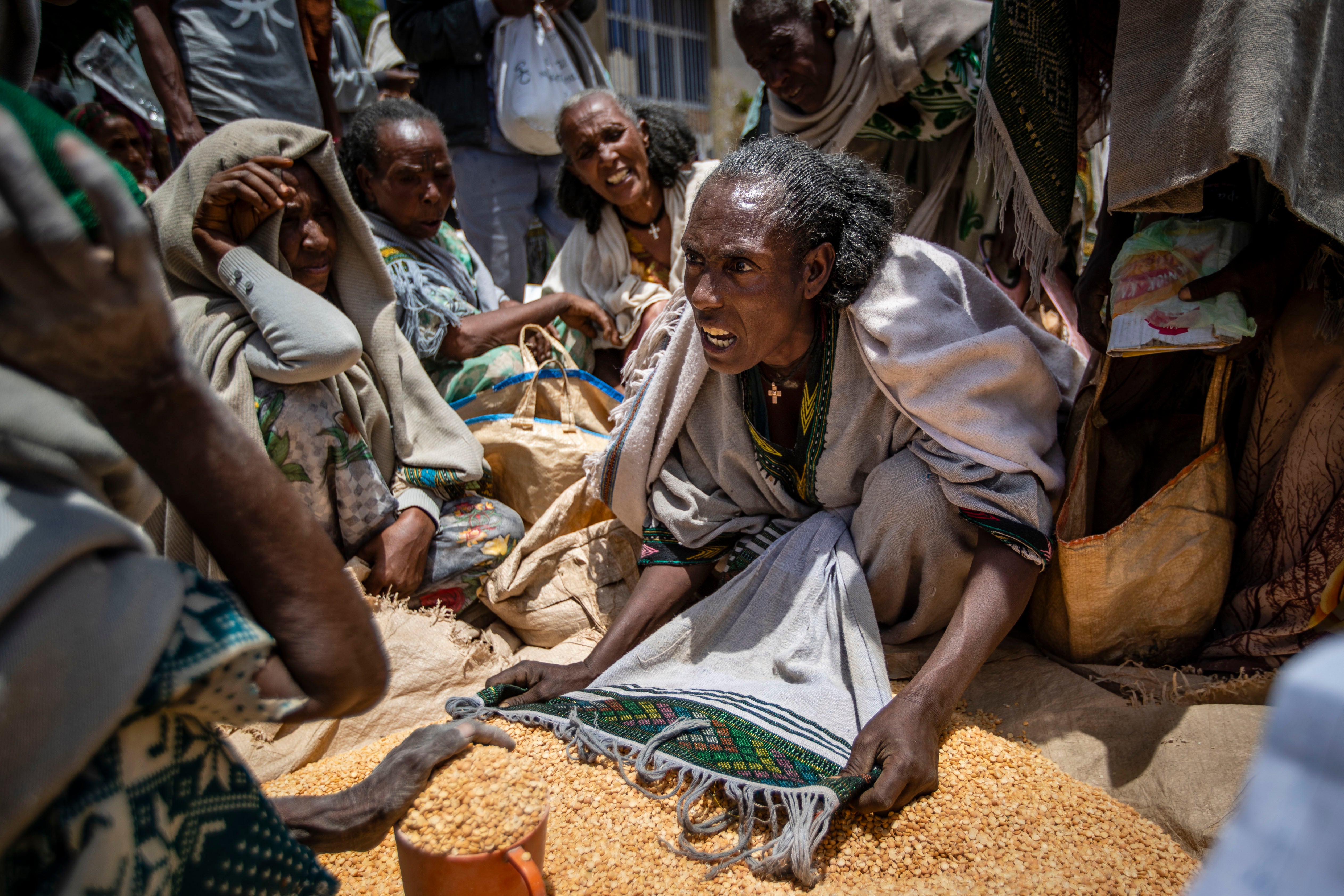
The chief of the World Health Organisation (WHO) has revealed that he is unable to send money to starving family members in Ethiopia’s war-ravaged Tigray region – and does not know whether some are dead or alive.
Six million Tigrayans are effectively trapped in the region’s humanitarian crisis, with electricity and access to the outside world having been largely cut off since the brutal civil war broke out in November 2020.
While for some months an uneasy truce had seen food deliveries finally make their way into Tigray, hostilities with the Ethiopian government have resumed this week as the lifeline of food aid was “severed” by an armed raid on a World Food Programme (WFP) warehouse which saw the theft of 570,000 litres of fuel.
In a passionate appeal on Thursday during a regular news briefing, WHO chief Tedros Adhanom Ghebreyesus, an ethnic Tigrayan, warned his family in the region is “completely sealed off”.
“I have many relatives there. I want to send the money. I cannot send the money. They are starving. I know I cannot help them,” Dr Tedros said.
“I cannot help them. I can’t help them. I can share from what I have. I cannot do that because they are completely sealed off,” he added. “I can’t speak to them. I don’t know even who is dead or who is alive.”
The Ethiopian government declared a national state of emergency with sweeping powers last June – cutting off services such as banking and telecommunications – after its soldiers fled the Tigrayan capital Mekele in a major victory for the rebels, whose own approach towards the national capital Addis Ababa was later halted by a drone-assisted military effort.
On Wednesday, a five-month truce was broken, with Tigray authorities alleging that Ethiopia's military had launched a “large-scale” offensive in the region for the first time in a year, and the government countering that Tigrayan forces attacked first.
In separate phone calls on Thursday with Ethiopian leader Abiy Ahmed and Debretsion Gebremichael, who leads the Tigray People’s Liberation Front, the United Nations secretary-general Antonio Guterres called for “the creation of conditions to restart an effective political dialogue”.

Nearly half the population in Tigray are in “severe” need of food, the World Food Programme warned prior to the fresh hostilities last week, with rates of nutrition having “skyrocketed” and the situation “set to worsen as people enter peak hunger season until this year’s harvest in October”.
The UN’s humanitarian chief Martin Griffiths on Thursday condemned the theft of fuel from the agency’s warehouse, which he said was “meant to help the UN and its partners bring humanitarian supplies to people who badly need assistance”, blaming the raid on Tigrayan forces.
“Without them, people will be left without food, nutrition supplements, medicines and other essential items,” he warned. “At a time when malnutrition and food insecurity are rising, the consequences can be dire.”
Mr Griffiths also demanded an end to the obstruction of humanitarian aid and protection of supplies throughout Ethiopia, renewing calls to restore basic services in Tigray such as banking and electricity, “which would contribute substantially to an improvement in the humanitarian situation in that region”.
Just days prior to his most recent plea, Dr Tedros had drawn the ire of the Ethiopian government after labelling the crisis “the worst disaster on Earth” and suggesting that his people had been overlooked because of the colour of their skin.
“I haven’t heard in the last few months any head of state talking about the Tigray situation anywhere in the developed world. Anywhere. Why?” he said. “Maybe the reason is the colour of the skin of the people in Tigray.”
But a spokesperson for Mr Abiy, the Ethiopian PM, later claimed the comments were “unbecoming of such a high-profile position” and suggested that Dr Tedros should recuse himself from his post if he wants to talk that way.
Dr Tedros has previously denied “taking sides” in the conflict, pointing to him having spoken out about humanitarian crises in many places, including Yemen, Syria, Ukraine and Congo.
Additional reporting by AP







